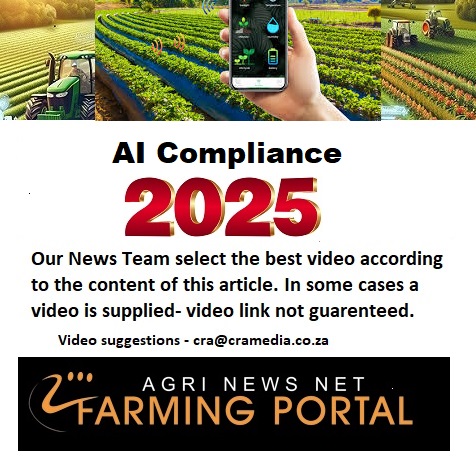Key takeaways
Africa’s first: Agri Carbon has become the first African soil carbon credit programme to earn certification under Verra’s Verified Carbon Standard (VCS) – a non-profit organisation that operates the world’s leading carbon standard.
Farmer benefits: South African farmers now have access to the growing global carbon credits market, earning new income from regenerative practices that improve soil health, resilience and yields.
Corporate demand on the rise: Investec purchased the entire first issuance of 39,207 tonnes, enabling it to shift from avoidance to removal credits while maintaining its carbon neutrality, achieved through a combination of emission reduction and responsible offsetting.
Global momentum: Soil carbon credits remain a small fraction of the USD 479 billion global carbon market (2024), but are expanding rapidly, with projects underway in the US, Australia and Europe.
Beyond neutrality: Carbon neutrality is an important milestone, but net zero remains the ultimate ambition – a focus expected to feature prominently in discussions at COP30 in 2025.
A first for Africa
When Woodlands Diary Farm manager Hein van Rensburg walks his fields in the Eastern Cape, he knows he's standing on more than just productive land. He's walking on a living system that has the power to capture carbon from the atmosphere and store it securely in the soil. “If you don’t have healthy soil, you don’t have any growth. Most people think that carbon is a bad thing, but for us farmers, it is essential to growing healthy, nutrient-rich food to keep our cows productive, healthy and happy,” he says.
That sentiment lies at the heart of Agri carbon, a pioneering regenerative farming programme run by sustainability consultancy Anthesis. With its recent certification under Verra's Verified Carbon Standard (VCS) Agri Carbon became the first initiative in Africa to issue verifiable soil carbon credits. It’s more than a regulatory milestone – it represents a shift in how Africa can contribute to global climate goals while creating economic opportunities for its farmers.
“This programme is just the start. It really positions Africa, not just as a participant in the global carbon markets, but really as a leader," says Franz Rentel, Anthesis South Africa Managing Director and AgriCarbon Founder.
From pilot to proof
Agri Carbon launched in 2021 with just 29 farmers managing 17,582 hectares. Over three years, the programme collected more than 70,000 unique data points on soil, agronomic inputs*, climate and cropping history. This level of rigour, rarely seen in early agricultural carbon projects, was only made possible with the involvement of Trace and Save, a business that, as its name suggests, tracks and measures the environmental impact of agriculture.
By 2024, the initiative issued 39,207 tonnes of credits under Verra’s VM0042 Agricultural Land Management methodology. It now involves 119 farmers in eight of the country’s nine provinces, turning over 200,000 hectares of farmland into carbon sinks.
This registration confirms the integrity and permanence of the soil carbon removals and reductions that the programme generates.
A first for corporate South Africa
What was once uncharted territory is now a sector on a rapid growth curve, with demand from corporates and businesses worldwide on the rise.
For Investec, supporting Agri Carbon was an opportunity to deepen its sustainability journey. The international bank and wealth manager has been carbon neutral for seven years, historically buying avoidance credits. With AgriCarbon, it shifted towards removal credits.
Investec purchased the entire first issuance, directly funding farmers’ transition to regenerative practices. “Buying carbon credits from Africa’s first soil carbon project was something that truly reflected how we’d like to have an impact on the South African economy.
We recognise that purchasing these credits does not replace the need to measure, disclose and drive down financed emissions, which constitute the majority of Investec’s carbon footprint. We disclose these emissions annually and track our progress in managing and reducing them over time, " explained Mooi.
 Agricarbon South Africa: Mechanization & Agriculture Grants
Agricarbon South Africa: Mechanization & Agriculture Grants
Global soil carbon credits: A market on the rise
Over the past few years, soil carbon credits have shifted from theory to large-scale deployment in multiple countries, notably in the United States, Australia and parts of Europe.
Just last month, an impressive 2.3 million credits, involving farmers in ten countries across Europe, were released by Danish startup Agreena. Ryanair, Radisson Hotel group, Microsoft and the Singapore government are among 15 companies that purchased the credits, as reported in Trellis.
Despite its rapid expansion, the global market for soil carbon remains small compared to the wider carbon economy. Analysts estimate that soil carbon credits issued to date are worth upwards of USD 100 million, a modest share of the voluntary market. Nature-based credits more broadly, including agriculture and forestry, are projected to capture nearly 40% of the global carbon credit market by 2035.
To put this in perspective: in 2024 the overall carbon market was valued at around USD 479 billion, with projections of nearly USD 4.7 trillion by 2030. Soil carbon is still a fraction of that pie, but its growing credibility and co-benefits are driving disproportionate attention. For Africa to achieve a first in this space signals that the continent is not just keeping pace, but emerging as a meaningful contributor to the global carbon economy.















